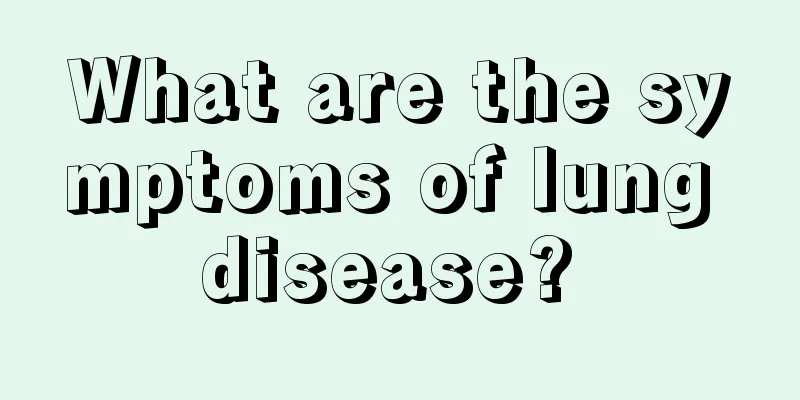What are the symptoms of lung disease?

|
Lung disease is one of the modern diseases with a relatively high incidence rate. Due to the increasingly serious pollution in modern life, people’s breathing conditions have deteriorated, making the lungs more susceptible to diseases. Lung disease has a particularly great impact on life. It can also lead to lung cancer, which in turn affects life safety. Let’s take a look at the symptoms of lung disease. Pulmonary disease A disease of the lungs themselves or a pulmonary manifestation of a systemic disease. The respiratory system consists of the respiratory tract (nose, pharynx, larynx, trachea and bronchi at all levels) and alveoli. The lungs are the main organs of the respiratory system, and lung diseases are respiratory system diseases. Symptoms: 1. Chronic cough, which may not be cured throughout life as the disease progresses. The cough is often more obvious in the morning and there are paroxysms of coughing or sputum discharge at night. 2. Coughing up sputum, which is usually white mucus or serous foamy sputum, occasionally with blood. More sputum is discharged in the early morning. During the acute attack period, the amount of sputum increases and there may be purulent sputum. 3. Shortness of breath or difficulty breathing, which occurs early during exertion and gradually worsens to the point where shortness of breath is felt during daily activities or even rest, is a hallmark symptom of COPD. 4. Wheezing and chest tightness. Some patients, especially those with severe disease or acute exacerbation, experience wheezing. 5. Other advanced patients experience weight loss, loss of appetite, etc. This disease must not be delayed and must be treated promptly. It is relatively easy to cure in the early mild stages. Do not let it develop to a very serious stage as it will be more troublesome to treat. It is best to choose a specialized hospital and receive treatment under the guidance of a doctor. At the same time, pay attention to drinking plenty of water, avoiding excessive consumption of greasy food, avoiding spicy and irritating food, and abstaining from smoking and drinking. Dietary conditioning in life is very important. Having a good living habit is the key to recovery from the disease. |
<<: How to prevent eye diseases?
>>: How to treat endocrine diseases?
Recommend
What does the discharge guidance for nasopharyngeal carcinoma patients include?
Discharge guidance refers to the health education...
What are the effects and functions of fried coix seed
Job's tears is a cool food and has certain me...
Is it normal for milk powder to have a shelf life of three years?
Many parents are troubled about what kind of milk...
What examinations should be done for rectal cancer
Rectal cancer is a disease that people often enco...
Is octopus a fish?
Octopus is a relatively common seafood. Strictly ...
Who are the high-risk groups for prostate cancer
Have you heard of prostate cancer? This is a male...
Can small cell lung cancer be diagnosed by CT scan?
Small cell lung cancer can be initially diagnosed...
How much beer is suitable to drink every day
Beer is a wine product mainly brewed from wheat. ...
What are the reasons for a long belly
There are many people with big bellies nowadays, ...
Experts' analysis on the causes of colorectal cancer
Intestinal cancer is a disease with a high incide...
How to squeeze juice to reduce nutrient loss?
Fruits and vegetables are plentiful in this seaso...
Traditional methods for treating cervical spondylosis are easy and practical
Cervical spondylosis is very harmful to people. I...
How long can one live with undifferentiated nasopharyngeal carcinoma and how to treat it
How long can one live with undifferentiated nasop...
What to do if acne and dry skin appear on face
Many people are helpless about the acne on their ...
What are the methods of earthquake self-rescue and escape
Earthquakes are common natural disasters in life ...









